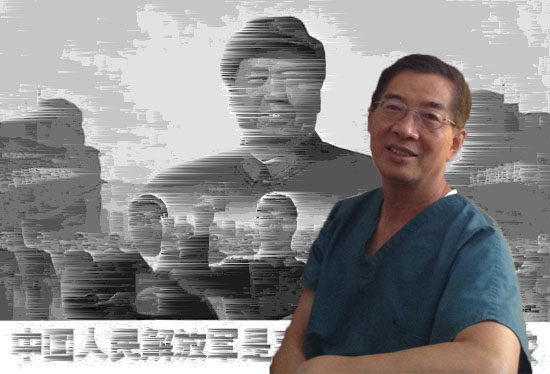What time and place can call you home? are you an epiphany? a question? / Is it something / you only pretended to welcome, something you’ve come to regret?
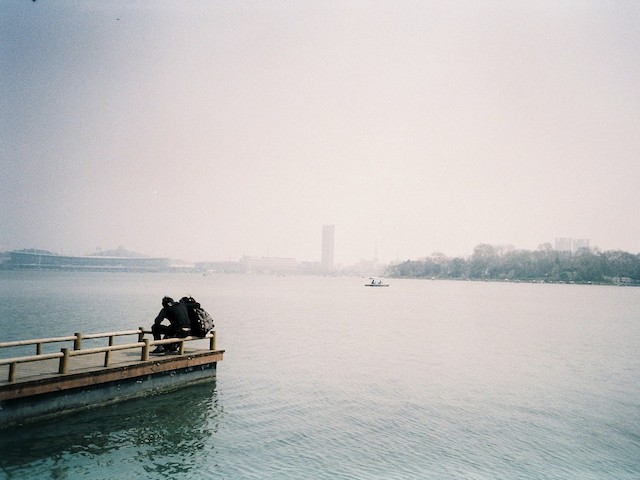
July 2, 2014
Nanjing is a tragic city. Its tourist spots are either places where people died or places people have been buried. Despite having been the capital during imperial China’s Six Dynasties (220-589), the city is scarred by the decline and fall of those ephemeral kingdoms. Today in Nanjing few historic landmarks remain intact, due to successive waves of destruction inflicted by Mongolian nomads, Manchu occupation, the Taiping Heavenly Army, Japanese invasion, the Civil War, and the Cultural Revolution. The city’s real history exists largely in the imagination: in myths and legends, poetry, drama, and art.
I am not alone in believing that the art and beauty that Nanjing boasts are what have brought about its tragic fate. Emperor Huizong (1082-1135) of the Northern Song Dynasty was one of the leading painters of his time. In terms of delicacy and technique, his art was rarely surpassed in the centuries that followed, and his personal collections included thousands of works of calligraphy and painting. Historians have remarked, however, that his passion for art weakened his political ambition and hindered his ability to run the country.
Reciprocally, the traumas imprinted in the geographical memory of Nanjing have continued to inform its arts. The exiled emperor of the Later Tang Dynasty, Li Yu (937-978), left behind many elegies that centered on hardship, loss, and bittersweet remembrances of his kingdom’s past glory. This psychological and aesthetic complex, ineffable and enmeshed as it is, has created a history and an artistic tradition that is uniquely Nanjing’s. After all, art is about failure and beauty.
Regardless of where they might originally hail from, all five contemporary poets in this collection currently reside in Nanjing, and their poems have been translated to English for the first time. The motif of the city appears frequently in their work, but the place that they refer to as “home”, “hometown”, “homeland”, “my city”, or “my country” is actually rather blurry and fictional. It seems that they are trapped in a place of familiar strangeness and torn between the anxiety of living in an impossible present and the wish to enter a home of anonymity and oblivion. In Hu Xuan’s “The Last Row”, the speaker sits comfortably in the back row of a conference room, and excuses himself totally from any responsibility to communicate and other worldly worries. In Dong Sun’s “Renunciation” (Cruel Crow, Nanjing University Press, 2011), the poet buries herself underground, waiting for her lover and prosecutor to bring her to eternity. In Yu Bang’s “Dwelling in the Fuchun Mountains,” the poet loiters, away from his mundane existence, getting “lost” in the “Fuchun Mountains” depicted in the famous Yuan dynasty painting of the same name.
The kingdoms in the poetry are gone forever, yet these poets cannot stop themselves from chasing their echoes and dreams. Haunted by loss and longing, they remain as “Other” in our world.
—Dong Sun
“Gazing Towards Home”
“Operation in Winter”
“Drinking Tea on the Hottest Afternoon”
“Autumn Makes People Quiet”
“Hometown”
“Delete”
“Flying Birds”
“Dwelling”
“Reading at Night a History of the West”
“Desert Sands”
“Source”
“Dwelling in the Fuchun Mountains”
“Maybe Your Name is China”
Special thanks to Andrea Lingenfelter for help in editing these translations.
Dong Sun
is a professor of English literature at the Nanjing University of Finance and Economics. A poetry collection she co-authored with Feng Dong, entitled The Poetry of Cruelty, was published in 2009. Her poems evoke the accumulated injuries sustained by women—”the songs of the crows”—and are concerned with death, disease, antagonism, delirium, womanhood, and darkness. The Canadian critic and poet Josh Stenberg once referred to her as China’s Sylvia Plath.
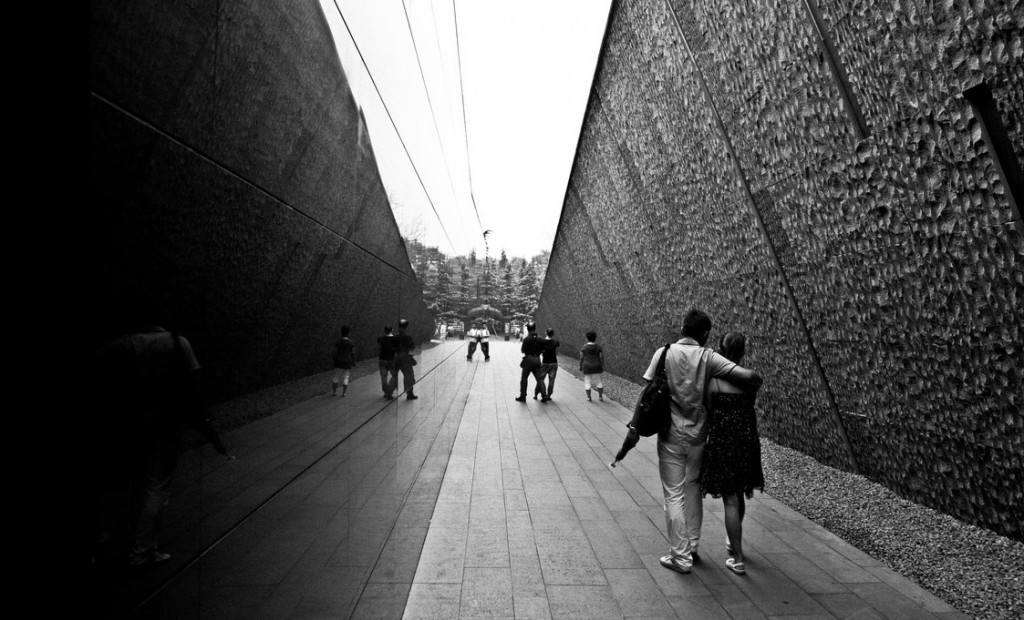
1. Gazing Towards Home
Beyond aging tenderness
on each leaf, brittle black alleys, etched by black hands of smoke
alleyways, in the sunshine, paved with gold
the sun, staring with blind eyes, rushes towards dark and overcast days
making the heavy seem light, in that place where
we turned back, those feet are constantly retreating…
What time and, place can call you home? are you an epiphany? a question?
Is it something
you only pretended to welcome, something you’ve come to regret?
In the local gazetteer
it halts
that day
in the whiteness of summer, crows plucked out, piece by piece
the green jade from their heads, resting on winding balustrades
they wept till they spat blood
and in later folksongs
the universe was brilliant, red banners fluttered, both pointing to the sky, and a single
mushroom
lofty, unmoving in this disorderly world.
2. Operation in Winter
People were discussing
the separation of
a pair of Siamese twins
in midwinter
white sunlight
had just aestheticized
a frog
Being a Siamese twin
is like being a four-leaf
clover
a meadow
can have only one
they
weep as they sing
discard things as they gather them
talk and remain silent
that’s why
their existence
is unreasonable
Long ago, people separated stars from stove fires
fruit from family
sex from love
leaving the world with just one pair of
Siamese twins
in grave danger.
3. Drinking Tea on the Hottest Afternoon
Drinking tea now
on the hottest afternoon
ten grams of cocklebur, twenty of safflower
sent from my home village
these stingy springs
melted snowmen
nightblooming cereus and sago cycad
come together tentatively
swirling
in boiling water
Drinking tea now, on the hottest afternoon
the ways of my home town are deceitful
separation still makes people loveable
and the cocklebur is still sweet and warming
while its poison has a lingering velvetiness
safflower is a good diuretic
relieves swelling, and fictional anguish
it slowly enters the lonesome emptiness
behind my body.
(Translated by Josh Stenberg)
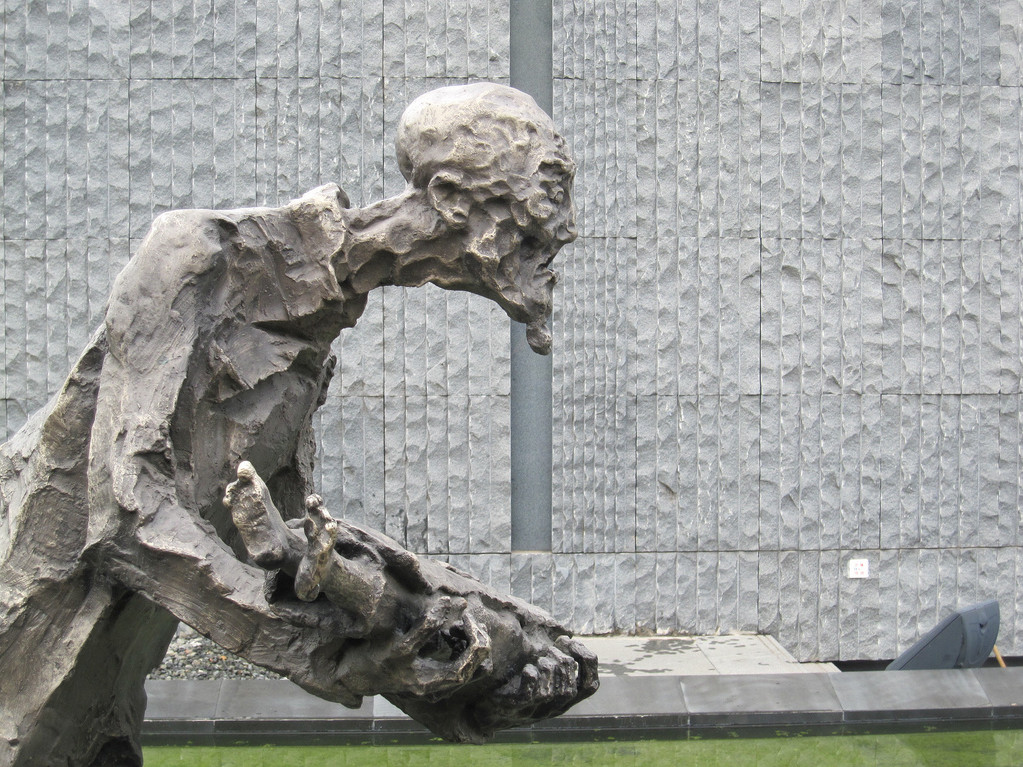
Huang Fan
is an associate professor at Nanjing University of Science and Technology. His poetry collections in Chinese—Elegies of Nanjing and Selected Poems of a Decade—have been widely anthologized. His first collection of translated poems, Original, was published in English in 2012. He is also the founding editor of Nanjing Criticism and the chief editor of the fiction column for the Western China Literary Journal. Huang Fan is the only poet presented here who has explicitly titled his poems “Elegies of Nanjing.” He has no one way of defining Nanjing, rather the city can take the form of “Chinar trees”, “the bone of youth”, “a gust of hot steam” the “skateboard of the moonlight”, or even himself. Time in Huang Fan’s poems is non-linear and overlapping. The poet exits simultaneously in youth, adulthood, and old age, dreaming two dreams at once: a final reconciliation with the world alongside a nightmare of falling into banality and death.
1. Autumn makes people quiet
It got quiet, just deep enjoyment in the heart
wanting only to be shut away in an enormous redwood
words hidden in the heart, only blurted out again by autumn wind
Silence sends reputation far away
Up on a mountain, to mention it is to abandon it
sunset clouds are the last breath the mountain exhales, but no one cares
the beauty of the blood it spits
A few sparrows, as if cautiously placing panic
until today, all the paths I’ve taken are curved like growth rings
I’m envious, the murderous constellations face the silence and remain unrepentant
I can’t help but look up, and learn to use silence to walk in the deep night.
2. Hometown
That September, faraway places aimed for my heart
I left home, for another province, such an undutiful child
the lake I fell in love with—throughout the journey I couldn’t call it by its name
bell mountain seemed both actual and false—
It wasn’t easy to abandon dragon king mountain
the same moso bamboo, stirring up entirely different emotions
the same silence, exuding different implications
when i sighed for bell mountain, it seemed i was sighing instead for dragon king mountain
Later, it made no sense to go back—
the old town was torn down, filling the empty space in my heart with darkness
one year, i figured it out, why i had come to another province
All that’s left me is an old hometown, and i shall never see it again
now, I myself seem to be the hometown…
Lu Dong
is a recluse who distances himself from literary circles and has intentionally adopted a position of independence, although when Youth Magazine awarded him a prize for Best Poetry in the early 1980s his reputation as one of the best poets in China was established. His poems reveal his infatuation with words—their origins and associations—and he attempts to unearth the meanings hidden or obscured by quotidian usage while exploring the boundaries of language itself. His poems are difficult to translate, since their meanings usually depend on the free play of morphological and phonological variations and re-arrangements.

1. Delete
Delete the deer
Reveal the horse
Delete this sentence
Its shadow
Like a deer
Like a horse
2. Flying Birds
Men imitate birds
Birds imitate men’s nightmares
The greatest birds
Aim high, fly far
After a lifetime aloft
They drop from the sky
And discover that flying
Out of every kind of magic
Is the lowest trick of all.
3. Dwelling
Fire lives in wood
Birds dwell in flying
I build, with ambiguous materials, my dwelling in this life
One man’s trials issuing from mouth and teeth
In broad daylight, doors and windows wear a few more scars
This is house is portable, foldable, and footnoted
Outside, prophetic flowers on the rubbish heap blossom
at the calling of the season
Passing creatures turn a blind eye… I sit on the roof
Pretending to fly, faking my insomnia
In an age weak as wind blown grasses, this man, heir to shadows
This man, who would become the contentious neighbor of future generations
Fire lives in wood
Birds dwell in flying
I build, with ambiguous materials, my dwelling in this life
A good architect knows how to fashion doors and beams
Man, the marks on your ruler have worn down
Black, white and yellow dwell in color, and the wind dwells in agitation
All things reside in words, waiting to burst
You and I, chasing after illusions, we
Exist in metaphors.
(Translated by Dong Sun)
Hu Xuan
is the executive editor-in-chief of The Yangtze River Poetry Journal. His poems have appeared in various newspapers and journals in China. He has published two poetry collections and one collection of essays and has received many literary awards and accolades. While they don’t always refer to identifiable landmarks, his poems reveal his connection with Nanjing through the use of classical images and symbols as well as his inclination toward the divine and the transcendent. In his monologues or self-defenses, he addresses different people or various elements in nature, exploring their relationships to him. His tone is meditative, and his observations are distanced but meticulous.
1. Reading at Night a History of the West
In the west, the moon is just as unsettling.
The moon, with its false glory and its darkness,
passing through countless hearts.
It returns to my window, like an old friend.
Coming into the lamplight, walking among dynasties in a book,
You turn the page, and it crosses another border.
Shining on illustrations, illuminating countless triumphant warriors.
——All of them bedecked in moonlight,
Light breezes scatter their black iron armor.
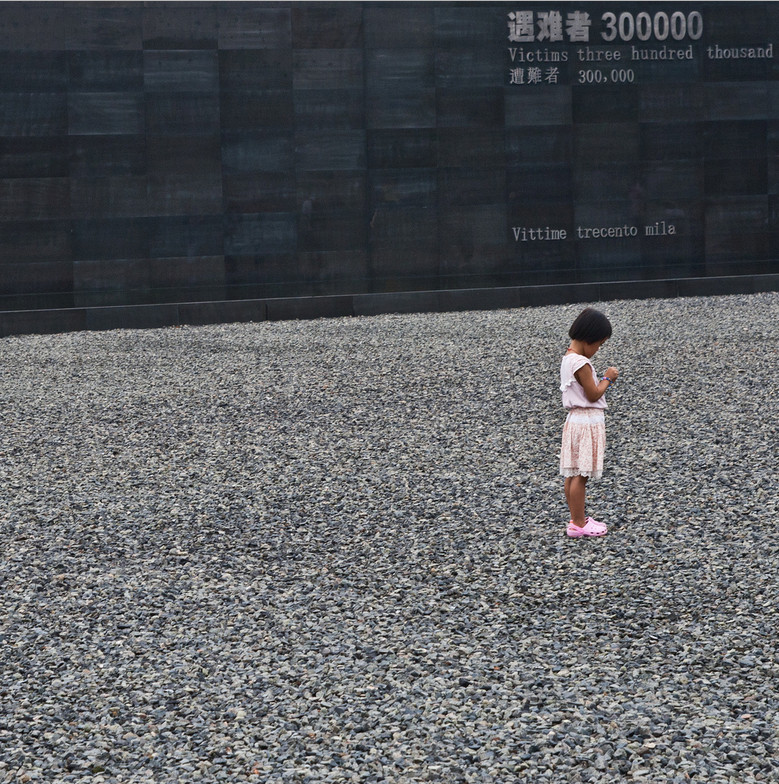
2. Desert Sands
I hold in my hands, these sand released by the passage
Of time, but I’ll never know what happened.
Each grain so small, so indistinguishable, and devoid of memories, perhaps
the answer is what slips through my fingers.
Zeal belongs to the revolution, wastelands belong to the defeated.
Only loss creates freedom, their territories defined
by the humblest god. And the greatest wind
Purges their minutest senses of bias
Sands, I see you once more,
Once more, I wonder at your vastness.
And yet these boundless expanses of sand, are only interested in fleeting pleasures.
Once again the dunes are moving across the horizon. , Any grandeur, in the end,
Will be achieved by this world weary movement.
3. Source
All glittering things are careless.
By the river, a girl in a scarf is washing clothes.
Rowboats are drift towards the woods. The horses’ manes, like rays of light, flow in the water.
Perhaps this is the time we have lost,
Like a mirror, like a fresh sunrise. Happiness is like the ripples born of waste.
—-I too used to think I that if I rushed I could recover
Every mistake, everything I’d missed.
While surging waves have grown calm, touched by their attachment to what is absent.
The still bay takes in the reflections, and it takes in
All of the hardships we’ve left behind.
(Translated by Dong Sun)
Yu Bang
is the editor-in-chief of Youth Magazine. His poetry collection “In Memory of Old Friends” won the Jinling Poety Award in 2013. Yu Bang’s concerns are diverse, ranging from social criticism to poetics to Zen contemplation. Sometimes, he experiments with parodies or the rewriting of classical works, taking on the tone of ancient poets, re-presenting through his mind’s eye their lost worlds, and re-creating a moment of epiphany intertwined with his own consciousness in the here and now.
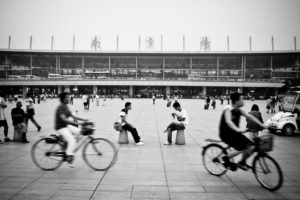
1. Dwelling in the Fuchun Mountains
From water to shore
From town to forest
In the hubbub, I bade farewell to the world of dust
I arrived at the dock of Temple Mountain
Following mountain roads, walking on to Wuli village
To the country of clouds
When tired, I sit down on a rock
And I’m just too exhausted to move
Troubling realities are like a mountain stream
Coursing through my frail heart
To alight [or perch] at Temple Mountain
I need only build a thatched hut
Starting the day basking in the sun
Ending the day gazing at the mountain
Clouds in the sky, water in the brook
And egrets occasionally flying overhead
When dusk descends
I take an urn and draw water
In a clearing, I arrange kindling
And brew tea
Sparks fly upward, flickering over my years good and bad
Darkness comes on time
I sleep a dreamless sleep.
2. Maybe Your Name is China
You are by the window
I look out from the depths of time
Our paths cross
But we don’t know it
Your hands sweat slightly
I write a letter
You float on a vast lake, like a corpse
Your smile is very Chinese
I turn away, hide myself in dense woods, climb to the mountaintop
You discard the last light
Dusk is my home
You have perished, and you are everywhere
Shedding gravity rid of gravity to become my game
You are my faithful pawn
This is what I heard:
You may be called China, or maybe not.
(Translated by Dong Sun)


